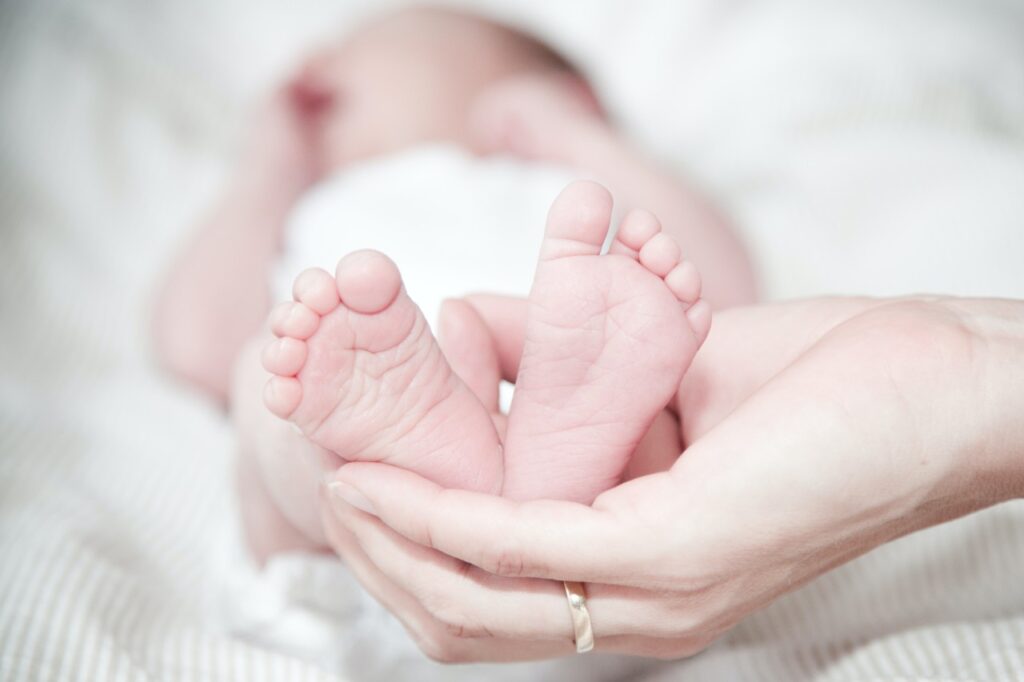Disclaimer: This article is meant to provide general information. For advice related to your specific situation, please consult a doctor or therapist. See our disclosure here.
Pregnancy and childbirth can be magical for many people. There’s the experiencing of milestones like feeling your child move for the first time, the shopping for maternity clothing. And of course the anticipation of meeting your baby for the first time. However, sadly not everyone experiences a wonderful birthing experience. Past estimates say one in three women experience birth trauma. In addition, out of the one-third of women that go through birth trauma, a significant percentage go on to experience PTSD and traumatization. For many women, the overwhelming sense of disappointment, guilt, and anger can cloud those magical moments after their child’s birth. Moving past it can be different for every mother.

Acknowledge That Your Birthing Experience Was A Valid One
Every birthing experience is different – even the bad ones. Many mothers feel they have no right to complain or feel angry about their experience due to their fear of being perceived as ungrateful or misunderstood. However, every mother should acknowledge that their childbirth experience is personal. Their feelings of trauma, fear, or negativity are completely normal.
It may be that your birthing experience did not happen as planned with your midwife and partner, or you experienced a personal injury during childbirth due to medical negligence or emergency actions, in which case legal support may be necessary. Every birthing experience is a valid one, and it’s crucial to seek out the support you need. Removing the expectations around cesarean births is another good example. For help with processing and accepting your experience, reach out to a family member, professional therapist, or childbirth support organization like The Prevention & Treatment of Traumatic Childbirth (PATTCh). The organization partners with Solace For Mothers, which focuses on providing support for mothers who have experienced traumatic childbirth.
Get Help Managing Your Stress Triggers
The consequences of a negative birth experience can be different for every mother. Some may experience flashbacks, while others experience panic attacks and night sweats. These are also common symptoms of PTSD after childbirth trauma. According to Solace For Mothers, Postpartum Posttraumatic Stress Disorder (PTSD) was once estimated to only affect 1.5% to 6% of women. Once you can recognize how you are affected and what triggers those symptoms, you can work with your therapist to address them. For instance, for those who experience anxiety or panic attacks, learning deep breathing and mediation techniques can help.

Focus On Building On The Positives Of The Experience – Your Baby
Lastly, focus on the overall experience instead of your birthing experience. Finding the positives in your experience can help you move past the negative feelings. For mothers, childbirth is just a small part of a lifetime relationship with their child. While it may have gotten off to a rough start, you still have a lifetime of opportunities ahead of you to bond with your baby.
Women can also focus on how the experience has impacted their relationship with their partners or loved ones. For some, it can be a catalyst that causes their relationship to strengthen. Resist the urge to make life-altering permanent decisions as well. If you can wait until you are in a better place so that you can make balanced decisions without clouded judgment.
As a mother, it is important to learn forgiveness. Experiencing birth trauma or injury does not mean that you’ve failed as a mother, or that you did something wrong. While some cases may be due to medical negligence, there are also some times where it is unexpected. Give yourself permission to move on and enjoy the positive memories ahead of you with your new baby as you journey into motherhood.




